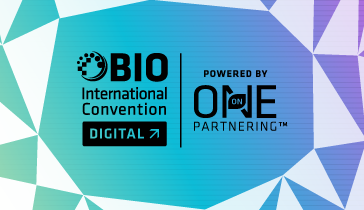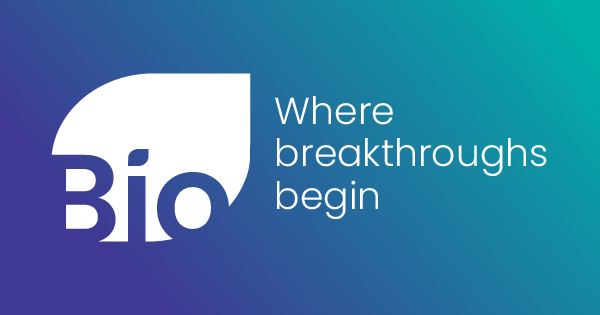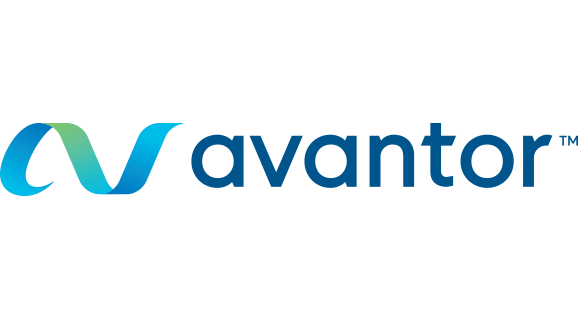In distressing times, we get by with a little help from our friends, as the song goes.
And as we’ve seen this year, collaboration and partnership are keys to getting through times of uncertainty, economic hardship, and solving enormous challenges—from ending a global pandemic to eradicating systemic racism and inequity in society.
In the last quarter of 2020, BIO welcomed 52 new members, for a grand total of 150 members this year—a recognition of the importance of connecting with business colleagues in this challenging time, especially for the industry on the frontlines of the COVID-19 response.
We spoke to several of our newest members to get an understanding of what’s driving this interest in BIO membership. Here are five reasons why companies joined BIO in 2020.
1. To make the right connections and grow
If we’ve learned one thing this year, it’s that collaboration and partnership are keys to solving our biggest challenges. Biotech companies of all sizes know that to continue to grow, innovate, and meet patients’ needs in this time of uncertainty, they need the right partners.
BIO can help.
“Since the start of the year, we’ve grown to 38 employees—an almost eight-fold increase since our launch with only five employees in March 2019—and we’ve made history with the very first FDA authorization of CRISPR technology for our Sherlock™ CRISPR SARS-CoV-2 kit for the rapid detection of the virus that causes COVID-19,” says Amy Lyons, Head of Communications at Sherlock Biosciences, Inc.
“To maintain this pace, growing our team is critical,” she continued. “We hope to tap into the BIO community to connect with the talent and resources that can help us continue to grow, and deliver on our vision to bring accurate, actionable health information wherever and whenever it is needed.”
“As a smaller biopharma, it is important that we strategically allocate our limited resources for maximum effect. Forming the right partnerships can enable us to do more with less,” said Dr. Maria L. Maccecchini, Founder, President, and CEO of Annovis, which is working on Alzheimer’s, Parkinson’s, and other neurodegenerative conditions.
“As we continue to make substantive progress with our development pipeline, we recognize the importance of partnering with the right organizations as we move toward commercialization. BIO members are a Who’s Who of the biggest names in pharma, and we look forward to networking with these organizations as we execute on our vision of attacking Alzheimer’s and neurodegeneration by improving axonal transport,” she continued.
2. To drive diversity and inclusion in the industry and society
In August, BIO launched the BIOEquality Agenda, an action plan to find solutions to inequitable health care delivery and eliminate economic, nutritional, and environmental disparities. We’re thrilled so many biotech companies are passionate about this call to improve diversity and inclusion in the industry, health care, and society.
“We believe that the BIO community will play a vital role not only in furthering innovation to improve lives, but also in responding to the need for equitable access to biotech breakthroughs,” said Sherlock’s Lyons.
“Initiatives such as The Right Mix Matters reflect our values as an organization and tie closely to what we hope to accomplish through The 221b Foundation, a non-profit we founded to address the global COVID-19 pandemic and diverse representation in STEM,” she continued.
“Ovarian health conditions impact over 30% of women and ovarian failure ultimately impacts all women, yet therapeutic interventions are limited. We recognize the important work that BIO has undertaken to address gender disparities in our industry and look forward to being an active member to help raise the profile of long-neglected therapeutic areas that affect women,” said Dr. Piraye Yurttas Beim, Founder and CEO of Celmatix, which is making progress on a preclinical Ovarian Failure drug program.
“In the short term, we hope to participate in initiatives that elevate the voices of women in biotech, including on topics related to gender-based data disparities, achieving greater parity in clinical trial enrollment, and driving renewed interest in women’s health. We hope we can partner with our peers and the leadership at BIO to advance these important issues, and bring greater equity to the people who work in our industry, as well as those patients served by it,” continued Dr. Beim.
3. To have a seat at the table in advocacy and policymaking
“Delivering on our commitment to revolutionize the lives of rare disease patients means we need to speak to every influencer and seize every opportunity in Washington to represent the community’s unmet needs,” explained Giacomo Chiesi, Head of Global Rare Diseases for Chiesi, the largest global pharmaceutical group to be awarded B Corp Certification, a recognition of high social and environmental standards.
“Public engagement and policy discussions strengthen a business model, and we look forward to the insights and opportunities that will ripen as we spend time in the policy weeds,” he added.
This is true for the agriculture and environment sector of the industry, too.
“Environmental issues, the safety of new plant and ag input technologies, food supply security, and other factors have led to greater legislative and regulatory scrutiny,” said Brian W. Pusch
Chairman and CEO of Microbes, Inc, which produces products that contain beneficial microbes,
mostly bacteria, that farmers use as crop inputs.
“BIO can play an important role communicating—in our case about various aspects of ag biotech. We hear very strong objections to science-based innovations, even though they can address significant problems in crop production,” he continued. “There are novel and useful innovations that can help feed the world but that sit largely dormant.”
“Knowledge and information can help bring better understanding and outcomes, for industry insiders, regulators, politicians and the general public,” Pusch said.
4. To reach more patients and improve outcomes
Across the board, our members are on the verge of exciting innovations that will improve patient outcomes—and we look forward to helping them bring those to the people who need them.
“With data expected in 2021 from two Phase 2a trials, one in Alzheimer’s and one Parkinson’s, and setting the stage for pivotal Phase 3 trials, Annovis Bio is excited to join BIO alongside the many leaders in pharma who are also bringing innovation to healthcare with the hopes of improving patient outcomes,” said Annovis’ Dr. Maccecchini.
“Saniona has an established research organization in Denmark with a long history of discovering new medicines,” said Trista Morrison, Chief Communications Officer of Saniona, a biopharma focused on rare diseases, including Prader-Willi syndrome and hypothalamic obesity.
“Now, as we advance from discovery into development and initiate mid-stage clinical trials for multiple rare diseases, we have expanded into the U.S. and built a corporate office and executive team in the Boston area,” she continued.
The bottom line: “We look forward to being a part of the BIO community and doing our part to advance science, innovation, access, and equality,” concluded Morrison.
We do, too!
5. To participate in BIO events
As an added bonus, members get a discount on BIO events—and in some cases, like BIO One-on-One Partnering at JPM, members get free access.
We’re planning an exciting lineup of virtual partnering events in the first half of 2021, and we know this is a big driver of membership growth.
Having attended several BIO conferences in the past, we know the energy and efficiency of gathering so many industry leaders together in one place and in the same time zone were unparalleled,” said Dr. Beim of Celmatix.
“While the organization has done an incredible job facilitating virtual events to support ongoing innovation and collaboration among its members, we are excited for this in-person conference to resume and to be a part,” she concluded.
See for yourself what BIO membership can do for you. Visit bio.org/join-today.






.jpg)












.png)


